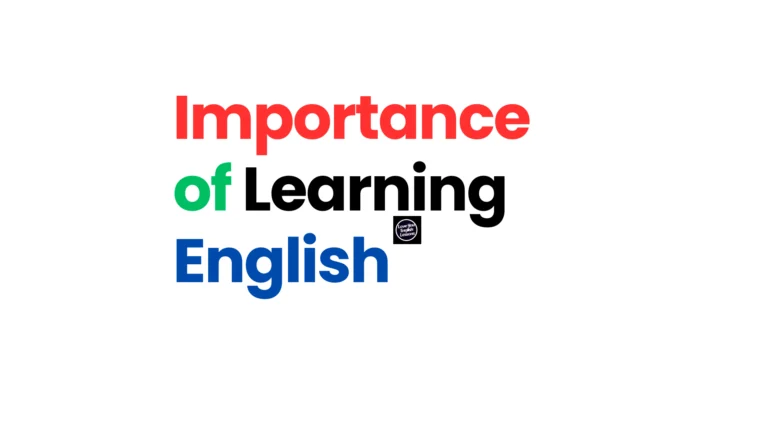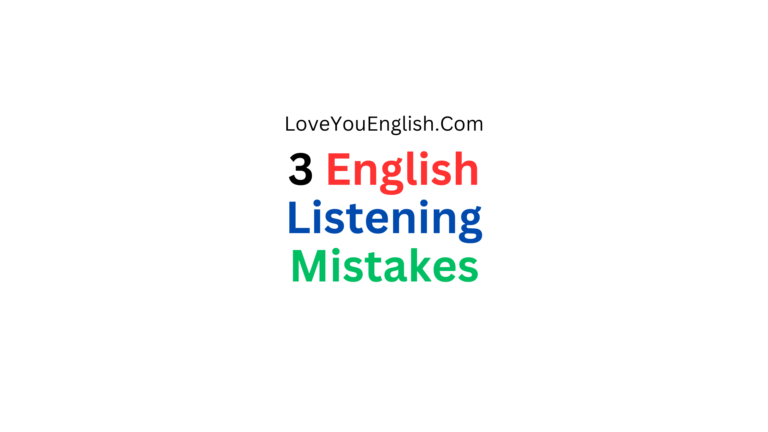How to speak English fluently
Hello everyone,
Tell me if you struggle with these four specific problems while speaking in English. If you do, this lesson is for you.
Please read till the end of this lesson. I will show you my method how I am learning different languages by following this specific strategy.
The way English is taught in schools is actually a joke. I’m saying this in the nicest way possible, but it actually is a joke. You would end up getting advice like that.
Go read a novel, go read English newspapers, go watch news, anchors, whatnot. Right. I tried doing this stuff when I was in school and it did not workout for me.
In fact, till 12 standard, I was horrible in my English because I was following traditional ways of learning languages and it did not workout for me.
So the structure just was not working for me. I had to devise my own method of learning English.
By the end of this lesson, I am hopeful that you would be able to pick some of the key strategies and points that I am telling you and incorporate that in your own speaking style.
Let me structure this lesson.
Specific problems that you might face and how you can overcome that.
The first key problem that you will face in terms of speaking in English is that you would say that hey, the words are not coming in my mind, therefore I am not able to speak fluently.
You need to identify that problem as a vocabulary problem.
Now whether you are a beginner, whether you are an intermediate user or if you are an advanced English speaker, you can always work and improve upon your vocabulary.
This tip is relevant for everyone. Now, the way English is taught in schools, they do what consultants usually call it boiling the ocean.
Schools try to teach you literally everything about English. Imagine a circumstance or a scenario where you are just trying to pick up a language and you think about grammar rules.
You think about sentence structuring, you think about building vocabulary.
It is just mind boggling and it will confuse you and your learning speed will be slow, right? I am not saying that you will not learn anything, but your learning speed will get hampered very quickly.
So what you need to do is that you need to follow something called as 80/20 rule. Now this is again a rule that is followed extensively and religiously by management consultants and the rule simply says that 80% of the results can be generated by 20% of the efforts.
You need to be smart in terms of building your vocabulary first. What do I mean by being smart in terms of building your vocabulary?
So do tell me in the comment box if your teachers have told you this. They would say that hey go buy an English Dictionary and start memorizing words from alphabet A and go order wise.
Why are such steps given to you? The short answer is yes right?
These were given to me also that hey if you want to improve your English-speaking skills and if you are looking to build your vocabulary, go and mug up the dictionary. It is madness.
There are 172000 words in English, 172 thousand words in English. If you try to learn the dictionary it is extremely inefficient and it will take you years to accomplish anything in terms of developing a good vocabulary.
What is it that you should rather be doing? You should develop your conversational style of vocabulary.
In English there are approximately 3000 to 5000 words that’s it. Out of 172 thousand words, there are good 3000 to 5000 words that are frequently used.
These would be called as conversational words and multi-use words.
So you should go and pick it up and you can get a very easy list on the Internet. Just go and Google that most frequently use words in English and you will get a lexicon, 5000 words.
Those are the words that you need to pick up. Now you can be an absolute beginner that you do not know anything in English and you can be an intermediate user.
You must first pick up these 5000 words so that you can start speaking English Understanding English first. Because the more and more you would hear these common words, you will get extremely good at using it, contextualizing it and speaking fluently.
So first step that you need to build your vocabulary, yes, but you don’t need to go and learn the entire dictionary. All you simply need to do is that you need to pick up multi use words. Multi use words would be something like beautiful.
Beautiful can be used in multiple contexts. It can be said that this flower is beautiful, or it can be said that this car is beautiful.
Or it can be said that this painting is beautiful, you need to pick up these multi use words first and get good clarity around it. If you pick single use words like oregano.
It might have very limited applicability when you’re just starting to build your vocabulary. Very important point for you to consider that those words are not coming in your mind because you have not developed your vocabulary in a right manner.
You must pick multi use words, get really good at it, then get onto more advanced levels by picking more complicated stuff as you progress.
Don’t try to do both the things together. A very easy way to build vocabulary and this is something that I’m trying to do for Spanish language as of now is.
I’m trying to memorize most frequently used 1500 words in Spanish. I use technology for it. I speak these words out, I record it, I listen to it on my phone.
That is how I am trying to build my vocabulary in Spanish because I am weak in Spanish. If you are weak in English, then your first step should be to build your vocabulary.
Now once you have built your vocabulary, you will run into problem #2, which is that hey, I make too many mistakes.
That will of course happen because you are moving from vocabulary stage to sentence construction stage.
And here you are likely to make a lot of mistakes because you are not familiar with the grammar rules and sentence structuring. Now your school will tell you that hey, go and mug up Wren and Martin.
That’s one of the best grammar books out there and it is correct that it’s a very good grammar book.
But if you try to memorize Wren and Martin again, it will take you years and you will get bogged down.
Not a very efficient strategy in terms of learning things fast. Here what you need to remember is that in order to move towards spoken English, you don’t need to have perfect grammar.
It’s completely OK to make mistakes when you are speaking and starting out.
And if you are a non- native speaker, it’s completely, completely OK to make mistakes. You don’t need to become the next Shashi Tharoor. It’s completely OK to make mistakes.
What do you do? You simply pick up a grammar book where the concepts are explained in a very easy to understand manner and pick up 100 simple grammar rules that make up the English language.
These would be things like what is subject, verb agreement, what is a preposition, what is adverb, what is adjective. You need to pick up this basic level of details by going through a simple book.
Now in case you want me to recommend some grammar books here, just drop a comment and I will put my answer in the description box.
The important point from this section is that it is natural and OK to make mistakes when you are transitioning from that vocabulary building state to sentence construction stage.
It is perfectly fine. Number two, you don’t need to be perfect in terms of your grammar. When you are speaking things, it is completely OK to make a few mistakes.
3rd And finally, to improve quickly, just go and study 50 grammar rules. That’s all the grammar that you need to know in English to start speaking in English. And this can be built fairly quickly.
Once you build your vocabulary and you understand about sentence construction, you move on to the intermediate level. Now here is where people get mostly stuck. Pay attention to this section.
Your issue seems to be that although you know English, you’re finding it difficult to speak confidently in the language. This stage is often referred to as the exposure or confidence-building stage.
What you need to do is that you need to create interesting learning exercises for you. For example, there is a technique that I call as picture visualization.
For example, once my basic vocabulary is built and I know a little bit of sentence construction, I will start analyzing some pictures.
Here is a picture for you to take a look at and I will start commenting on it. I will see that, hey, this is a funny picture of Mona Lisa.

Mona Lisa is one of the most celebrated paintings in the world. It is kept in the Louvre Museum, and I will do a 45 second speaking exercise on this.
Mona Lisa is one of the world’s most famous paintings, housed in the Louvre Museum in France It is painted by one of the most celebrated painters in the world. Now this picture depicts a very funny side of Mona Lisa.
She is looking at a family and trying to kill her. Probably we associate Mona Lisa with the seriousness and the beauty that it depicts.
But this picture is very funny and very interesting to me. This is the type of impromptu speaking exercises that I would do and I would encourage you to do.
This will help you build confidence. Similarly, you can pick up 10 picture exercises that you can start doing and start blurting things out.
This will help you consolidate your vocabulary that you would have initially built. And align that with the sentence structuring that you would have built subsequently.
Similarly, you can start watching English movies with subtitles, or listening to English commentary or speaking in front of mirror.
All these exposure exercises will help you consolidate all your learning that you had undertaken in step one and two. Now comes the final stage, and this is what differentiates intermediate users and advanced users.
You might have met very intelligent people. They would say that you know what? I know all the grammar rules. I have a very good vocabulary, but I do not feel confident enough.
The best way to overcome this weakness is that you should go and speak with people in English.
If you go and speak with native English speakers, nothing like it, that will give you a lot of confidence. It will give you a lot of insights in terms of how English conversations take place. This is what amplified my skill.
In summary, developing your language skills, be it English or be it Spanish, it’s a very logical thought-out process and you must follow that process to develop your skill set in an effective manner.
Otherwise learning a language can be such a massive task that you will get bogged down and that is what happens with majority of the people who are trying to learn English.
I hope that you found this lesson to be useful and insightful. Let me know your comments and if there are any questions, do drop a comment and press the like button, it would mean a lot to me.






